

- 2024
2023
STRATEGIC PLAN

Working

Contents Introduction
together
schools and nurseries better and
communities stronger Strategic Ambition Our Mission and Vision Our Values Our Pupil Outcomes Our Staff Ethos Our Strategic Aims Measurement and Priorities
makes a great LEO Academy? School Improvement Strategy LEO Teaching and Learning Strategy Curriculum Strategy LEO SEND Intent, Implementation, and Impact Financial Strategy Risk Management Strategy Growth Strategy Digital Strategy Professional Learning Strategy People Strategy Sustainability Strategy Partnerships Communication Strategy 03 05 07 08 11 12 14 17 27 31 35 38 39 41 49 52 56 69 73 76
to make our
our
What
Working together to make our schools and nurseries better and our communities stronger
At LEO Academy Trust, we are proud to serve over 4500 pupils from across the London Borough of Sutton and Surrey. Our Trust was formed in 2015. Since then, we have developed a family of great learning communitiesformed from ten primary schools, grown a culture of excellence for all, while providing endless opportunities for our pupils, staff and the local communities we are part of.

With over 600 staff, our schools are empowered to support each other to improve both outcomes for our pupils, and to drive performance across the wider school system. We are proud that all of our schools are members of the Challenge Partners Network of Excellence. Learning, Excellence, and


04
Mission Vision &
Mission
LEO Academy Trust is committed to developing a family of great schools, where collaboration makes a realdifferenceforourchildren,staff,andcommunities.

Vision
Learning - Excellence - Opportunity
GreatLearningcommunities; Excellenceforall;endlessOpportunity.

06





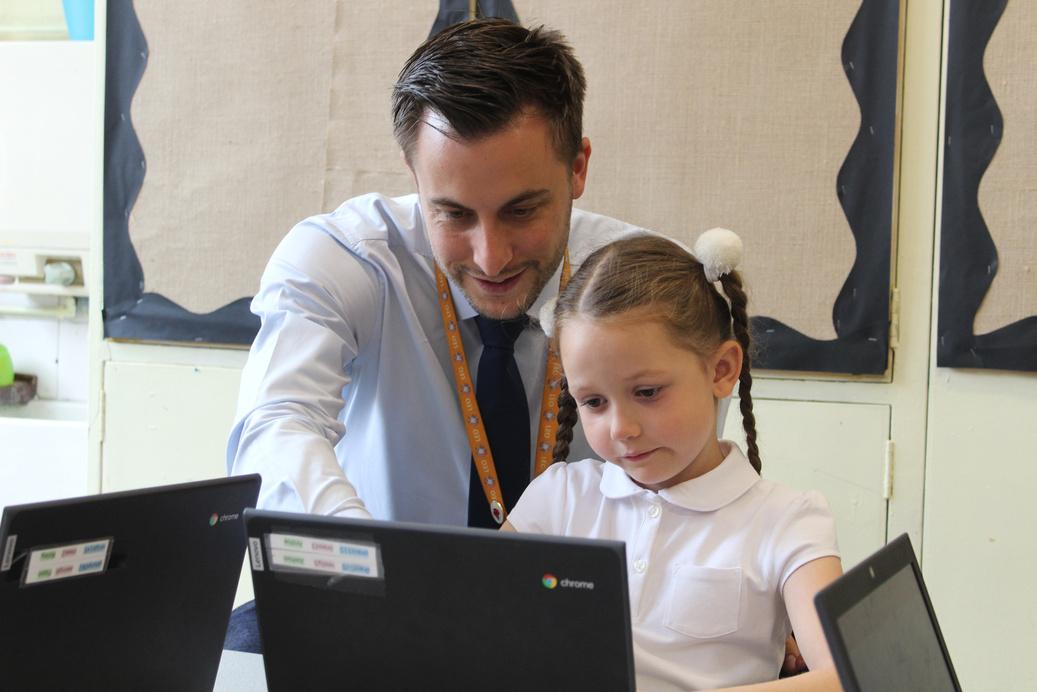
erseverance
Our Values P R I D E
espect magination edication ncouragement
LEO Pupil Outcomes
At LEO Academy Trust, we aim to prepare all of our children for life, as well as for secondary education. By the end of their time at a LEO school, we expect children to be:


ACTIVE CITIZENS IN A GLOBAL COMMUNITY
LEO pupils are local, national, and global citizens; they have a strong sense of identity, respect and value the importance of diversity and inclusion, and make positive contributions to their community.
SELF-DIRECTED, COLLABORATIVE, & CONFIDENT
LEARNERS
LEO pupils develop independence, confidence and character through spo experiencing the world of work.
08
INNOVATIVE LEARNERS WHO PURSUE EXCELLENCE
LEO pupils innovate, develop digital skills and maximise the use of technology; their performance in Maths, English, Science, and Computing exceeds their peers nationally.

HEALTHY LEARNERS WHO MAKE SMALL CHANGES WITH A BIG IMPACT
LEO pupils have the physical, emotional, and social literacy to overcome challenges. They communicate effectively.

LEADERS OF TODAY; LIFE LONG LEARNERS
LEO pupils develop critical thinking, leadership skills, life skills, cultural capital, and financial literacy.


10
Our Staff Ethos
Our LEO TEAM approach
We are all one team; we share the same Vision, Mission, Values, and Aims.
E AAs one team, we have the same expectations of each other and our pupils. We believe in diversity in approach, but consistency in outcomes.
We collaborate, we support each other and we achieve together.
Together xpectation chieve ove forwards
MWe are focused on the future and never stand still. Individually and collectively, we develop and grow. We are outward looking and always push the boundaries of what is achievable.
Our Strategic Aims
To develop a family of great schools where collaboration ensures …
Children are safe and enjoy learning. Everyone feels included, respected and valued. An ambitious curriculum develops pupils for the challenges of life. Staff potential is recognised and invested in. We make a difference to the communities we serve.


Trust Objectives:
A) Create a new LEO EYFS Strategy, to grow our private nursery provision for 2-4 year olds at every site.
B) Through our LEO Digital Strategy, empower staff use of AI across all educational and professional services to drive efficiency and reduce workload.
C) Develop the LEO Communication Strategy #WeAreLEO, creating a vision for #LEO2030 which includes themes such as: teaching & learning, opportunity, digital, sustainability and community, underpinned by our inclusive vision of excellence for all.
School Objective:
Teaching & Learning Strategy - Embed the L
12
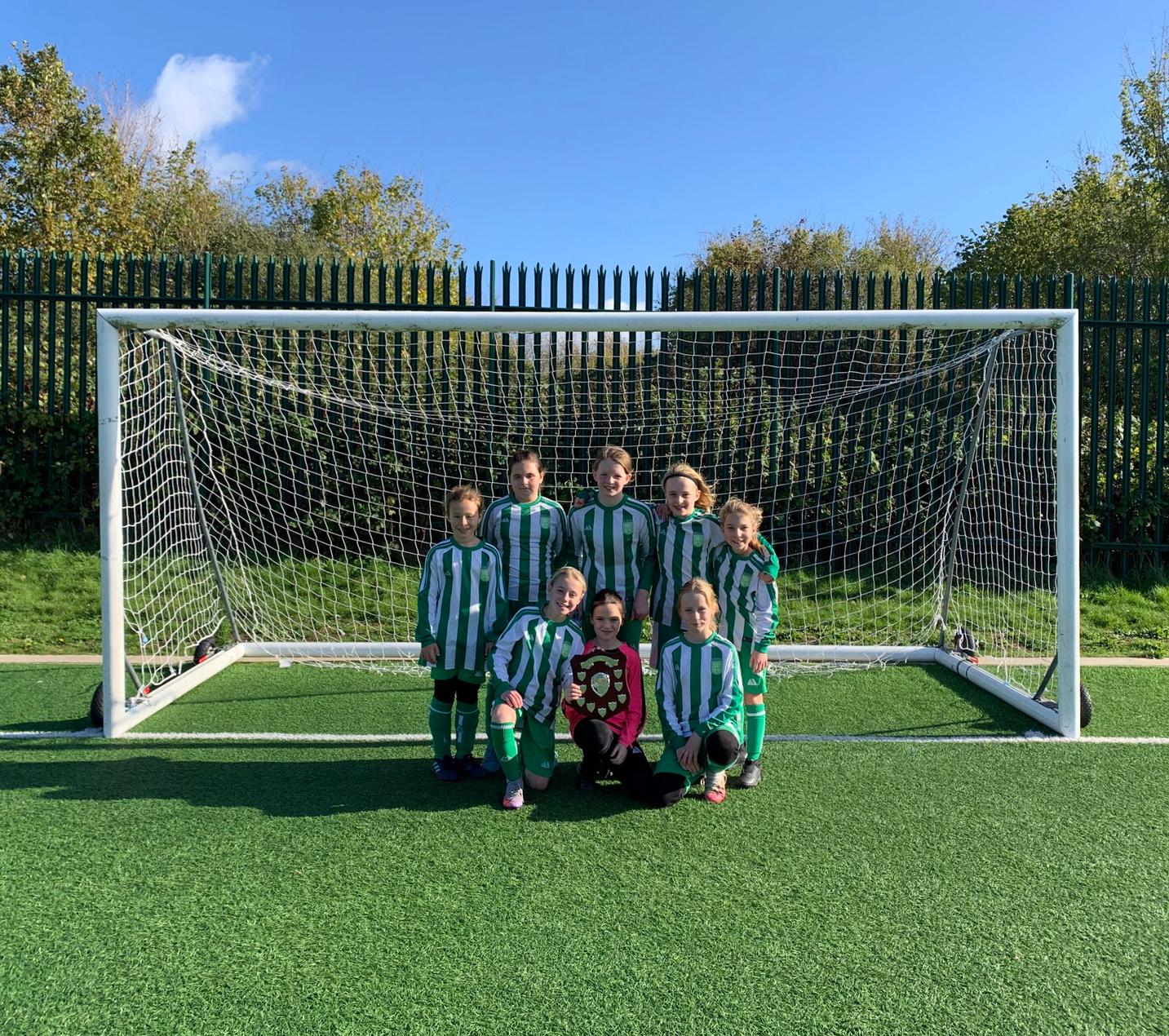
What Makes a Great LEO Academy?

MISSION, VISION, VALUES, & AIMS
The Trust's mission, vision and values are clearly evidentacrosstheschool
A consistent approach to embedding and developingtheTrust’sinclusivevisionof'Excellence forAll'isclearlyevident
The school supports the implementation of the Trust’sfivestrategicaims.
TEACHING, LEARNING & ASSESSMENT
TheTrust’sTeaching&LearningStrategyis embeddedacrosstheschool
Adaptiveteachingsupportstheschool’sinclusive approachtolearning.
Apedagogicalapproachtotheuseoftechnology iswelldevelopedacrossallyeargroups.
PEOPLE AND CULTURE
The Trust’s People Strategy and Growing Great People Framework is embedded across the school.
The school supports the Trust’s succession planning by recruiting, retaining and developing talented staff.
The school clearly follows the LEO TEAM approach. Staff develop collaborative and deep partnerships with other LEO schools as required, while the school supports and builds these beyond the Trust.
Theschooloffersanambitiouscurriculum (AtLEO,weseeanambitious curriculumasonewhichgoesbeyondNationalCurriculumexpectations, bothintermsofcontentandoutcomes).
Leadersensurethattheschool’scurriculumiscoherentlyandprogressively sequenced
CURRICULUM
Theschooloffersawiderangeofopportunitiesforpupils,enablingthemto excelacrossallLEOPupilOutcomes,ensuringthattheyarefutureready.
14
INCLUSION
SEND (including pupil wellbeing)
The Trust’s SEND Strategy is embedded across the school. The Pupil Wellbeing Policy is in place. SEND children make good individual progress from their starting points
Pupil Premium Children Behaviour &
The Pupil Premium Strategy is effective and Pupil Premium (PP) children make good progress with the gap closing.
Attitudes
Strong values underpin good behaviour. There is a whole-school behaviour approach which is underpinned by the LEO Behaviour Strategy
PERFORMANCE, QUALITY ASSURANCE & ACCOUNTABILITY
Positionedinthetopten,forallattainment& progressmeasures,withintheirEEF'family'of schools.
https://educationendowmentfoundation.org.uk/ tools/families-of-schools-database/ Progressandattainmentoutcomesforpupils exceednationalaveragesbytheendofeach keystage
Theschoolsuccessfullyengageswithquality assurancereviews(internalandexternal)with positiveoutcomes.
OVERALL EFFECTIVENESS
School of choice for local parents.
Children attend school regularly.
Persistent Absence (PA) is effectively addressed for all groups.
Graded Good or better by Ofsted.
GOVERNANCE & COMPLIANCE
EffectivenessoftheAcademyCommitteetosupport&challenge theschool,inlinewiththeTrust’sSchemeofDelegation.
Schoolmeetsstatutorycompliancerequirementsfor:website, GDPR,Health&SafetyandRisk.
Safeguardingiseffective.AllstaffarecompliantwiththeTrust’s SafeguardingPolicy.360’OnlineSafetyreviewisregularly reviewedandimprovedon.

16
LEO School Improvement Strategy
OurSchoolImprovementStrategyisencapsulatedinourfiveaims:
Todevelopafamilyofgreatschoolswhere:
Childrenaresafeandenjoylearning.
Everyonefeelsincluded,respected,andvalued.
Anambitiouscurriculumdevelopspupilsforthechallengesoflife.
Staffpotentialisrecognisedandinvestedin.
Wemakeadifferencetothecommunitiesweserve.
Our School Improvement Strategy defines who we are as a Trust and its impact measures our effectiveness. All staff work in collaboration to deliver our Aims and are committedtotheprinciplesofourLEOTEAMApproach:

Together
Wearealloneteam;wesharethesameVision,Mission,Values&Aims.
Expectation
Asoneteam,wehavethesameexpectationsofeachother&ourpupils.Webelievein diversityinapproach,butconsistencyinoutcomes.
Achieve
Wecollaborate,wesupporteachotherandweachievetogether.
MoveForwards
Wearefocusedonthefuture;individuallyandcollectively,wedevelopandgrow.
SirDavidCarter(2020)illustratesthekeyattributesofsuccessfulschoolimprovement:
‘The trust’s school improvement model is responsive to the needs of each individual school.’
‘Improvementshouldberootedintheevidencefromtheclassroomsofeachschool.’
‘The same resource needed to support one school may not be the best to deploy with another.’
1.
2.
3.
4.
5.
Carter,D.(2020)LeadingAcademyTrusts:WhySomeFail,ButMostDon’t. JohnCattEducational.
Our School Improvement Strategy aims to create and sustain schools where all pupils can excel across all five of our LEO Pupil Outcomes:
Active Citizens in a Global Community
LEO pupils are local, national & global citizens; they have a strong sense of identity, respect and value the importance of diversity & inclusion and make positive contributions to their community.

Self-Directed, Collaborative & Confident Learners
LEO pupils develop independence, confidence and character through sport, creativity, performance, volunteering & experiencing the world of work.
Innovative Learners who pursue Excellence
LEO pupils innovate, develop digital skills & maximise the use of technology; their performance in mathematics, English, science & computing exceeds their peers nationally.
Healthy Learners who make small changes with a big impact
LEO pupils have the physical, emotional & social literacy to overcome challenges. They communicate effectively.
Leaders of today; life long learners
LEO pupils develop critical thinking, leadership skills, life skills, cultural capital & financial literacy.
School Improvement follows a system leadership model and is led by our Executive Directors. At any given point, there is a collective understanding that some schools receive a higher level of support from the Trust’s central School Improvement Team, due to current need. We make leadership happen through collective shared beliefs about what will produce direction, alignment, and commitment.
18
Agreement on what the collective is trying to
Effective coordination and integration of the different aspects of the
People who are making the success of the collective (not just their individual
achieve together (Direction). work so that it fits together in service of the shared direction (Alignment). success) a personal priority. They create a culture of continuous improvement in our schools through self-evaluation, challenge, support, and appropriate action. (Commitment).
Resources are shared across all schools in an equitable way. Where possible, we also look to share our school improvement expertise and resources beyond the Trust.
LEO School Improvement Model
Our School Improvement Strategy provides a ‘Team Around the School’. This network of support allows the Principal to focus on quality of education and draws upon expertise in key areas such as Teaching & Learning, Inclusion, Assessment, Curriculum, Digital Skills, Stakeholder Voice, and Safeguarding.
CEO
GrowingGreatPeople
Coach
LeadershipDevelopment
SchoolImprovementPartner (whereappropriate)
Executive Director (Growth& Development)
Finance&Operations
People
Governance&
Compliance
COO
Principalor Headteacher
Executive Director (Education)
QualityofEducation
Curriculum
Assessment
StaffDevelopment
External Partnerships
LEOSchool Improvement Team
Executive Director(TS& Inclusion)
Inclusion&SEND
Safeguarding
EYFS
Attendance
English
Maths
Computing&DigitalSkills
Music
PE&Sports
TeachingandLearning

20
School Improvement Areas of Responsibility & Accountability
Trust Level
Executive Directors provide strategic leadership for a wide range of school improvement areas including:
Safeguarding Teaching and Learning
Curriculum and Assessment
SEND, Inclusion, Personal Development & Wellbeing
Behaviour
Digital People, Leadership Development & Professional Learning
They are supported by central members of the LEO Leadership Team. This includes Trust Principals, Trust Vice Principals & Directors for areas such as SEND, English, Maths and Computing & Digital Skills
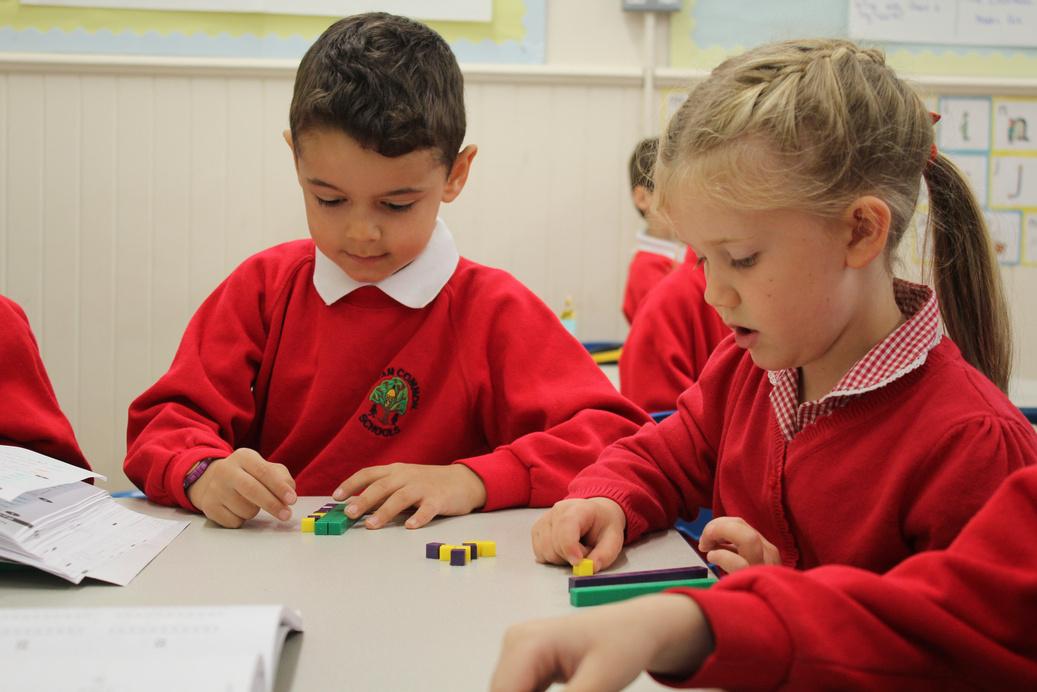

School Level
Principals and Vice Principals enhance and develop the Quality of Education and Leadership and Management by providing educational leadership to:
Identify and analyse complex or persistent problems and barriers which limit school effectiveness or efficiency; Ensure the leaders focus on improving teachers’ subject knowledge and pedagogy, drawing on evidence-informed strategies; Lead well targeted plans for improvement; Evaluate progress of improvement plans; Identify impact and reshape where necessary; Coach senior and middle leaders within the Growing Great People Framework.
Area egated to school-based senior leaders include:
Safeguarding
Curriculum & Assessment
Teaching & Learning (including Feedback & Response)
EYFS, KS1 & KS2 end of year pupil outcomes
Wider pupil outcomes (focused on our 5 LEO Pupil Outcomes)
Staff training, professional learning, coaching & mentoring
Reporting to the local Academy Committee
Inclusion (SEND, Pupil Premium, EAL, behaviour, mental health & wellbeing)
Pastoral care and opportunities for pupils (focused on our 5 LEO Pupil Outcomes)
Year group / phase leadership
Subject leadership
Pupil Voice & Parent Partnership
Educational visits & residential trips
Executive Leaders work in collaboration with our Principals, to set leadership and staffing structures for our schools. They delegate the above areas to leaders and teachers as appropriate. Leadership and staffing structures are approved by the CEO annually and shared with local Academy Committees and the Trust Board.
Central members of the LEO Leadership Team shape strategies which cover areas such as: Teaching & Learning, Assessment, Feedback & Response, Digital Skills, Inclusion, Behaviour and our LEO Pupil Outcomes, which support the intent behind each school’s curriculum
Working to an agreed framework, they also support school-based leaders and teachers with school improvement, with a focus on empowerment and sustainability Directors are deployed by the Executive Team in consultation with schools. Consideration is taken of the key focus areas for support e.g. year group/s, curriculum focus or data and is mindful of:
End of EYFS, KS1 & KS2 performance and current end of key stage targets
Next expected Ofsted inspection
Other outcomes from our school & trust level dashboards
Director support also includes the provision for further staff training and development, wider opportunities for pupils and access to a wide range of inclusion services.

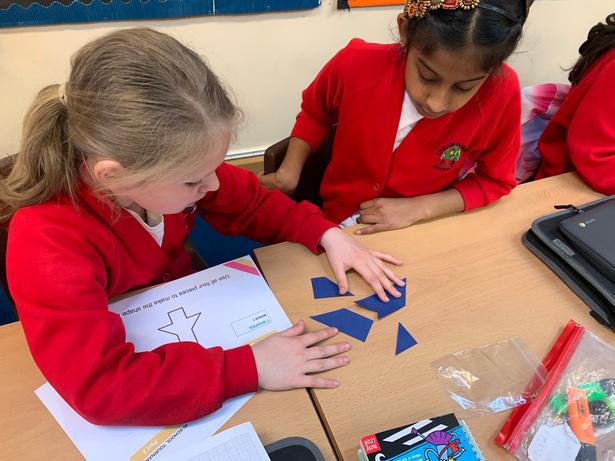
22
School Improvement Meetings
LEO Executive Team Meetings every week to discuss and collectively agree strategic actions on:
Safeguarding Schools - Support & Challenge Updates
WMG LEO School - School KPI Dashboard & Trust Heat Map
School Improvement Deployments (Inclusion, Teaching & Learning and Curriculum)
Finance
People (including: staffing & Growing Great People Framework)
Estates & Services (including: catering, premises, IT Network & sustainability)
Governance & Compliance
Other items as required
LEO Senior Leadership Team Meetings every week to support the development of, and receive updates on, key strategic areas such as:
Safeguarding; School Improvement; Teaching & Learning; Curriculum & Assessment; SEND, Inclusion, Personal Development & Wellbeing; Behaviour;
Finance;
People & Professional Learning;
Estates & Services (including: catering, premises, IT Network, sustainability, marketing & communications, extended schools, and lettings);
Governance & Compliance, including the work of our Academy Committees; KPI Dashboards for finance, risk, the quality of education and assessment, at both school and trust level;
Other items as required by Principals.
A meeting overview is set at the beginning of each term. Not all executive and senior leaders will be required to attend every meeting
Team Around the School Meetings
Support and challenge is provided to all schools on a regular basis throughout the year Principals receive a calendar of planned visits ahead of the start of each academic year.
Meetings with Principals (and other senior & middle leaders as required) include: (2 hours, termly)
Professional Growth Coaching & Leadership Development (2 hours, half termly) Inclusion (SEND, personal development, pupil wellbeing or behaviour)
Teaching & Learning or Curriculum (2.5 hours, termly)
HR & Finance (1 hour, monthly)
Estates & Services (1 hour, monthly)
Safeguarding (annual audit)
Health & Safety and Fire (annual audits)
GDPR & DPO (annual audit)
Attendance (1 hour, monthly)
Academy Committee Meeting Preparation with AC Chair (1 hour, termly)
Additional visits may be added for schools causing concern
Pupil Achievement & School Improvement Meetings with the CEO and / or Executive Director (Education) and the Academy Committee Chair
Attended by the CEO and / or Executive Director (Education), a Termly Pupil Achievement & School Improvement Meeting is held with the Principal, Vice Principal & Academy Committee Chair at the start of each term, focused on:
Pupil Data
School Development Plan
Staff Performance & LEO Growing Great People Framework
CEO Visit
The CEO visits each school on a termly basis. Informal meetings are held with the principal, school leadership team and pupil voice groups. These are focused on the school’s engagement with the Trust’s mission, vision, values, aims & LEO pupil outcomes, as well the current LEO Strategic Plan.
Professional Learning
The Trust provides a wide range of opportunities for teachers and leaders to engage with professional learning. Development opportunities include:
Bespoke ECT Induction Programme in partnership with Harris Crystal Palace Teaching School Hub and the National Institute of Teaching;
LEO & Sutton Education Trust ECT Subject Specific Training programme;
Power of Coaching Programme.
Outstanding Teaching Assistant Programme
BA Hons Degree in Primary School Teaching for Teaching Assistants with the University of Buckingham in partnership with Anspear
Creative Teacher Programme
Outstanding Teacher Programme
Outstanding Leadership in Education Programme
Senior Outstanding Leadership in Education Programme
LEO Future System Leaders Programme
SEF
24
Access to the complete suite of National Professional
Qualifications with Harris Crystal Palace Teaching School Hub and the National Institute of Teaching
Network Learning Community Meetings
Google Level 1 and 2 training
Training opportunities to develop curriculum expertise
Onboarding new schools
A focus on school improvement is central to the successful integration of a new school into our Trust. Our Executive Directors work with incoming schools to carry out an audit which determines where they may require support and / or challenge.

LEO Central Structure Charts
Professional Services Team
Education Team Executive Team Inclusion Team
Senior Leadership Team
Contact our LEO Central Team with our Go to Guide:
LEO Go to Guide
Trust Self Evaluation & School Improvement Cycle
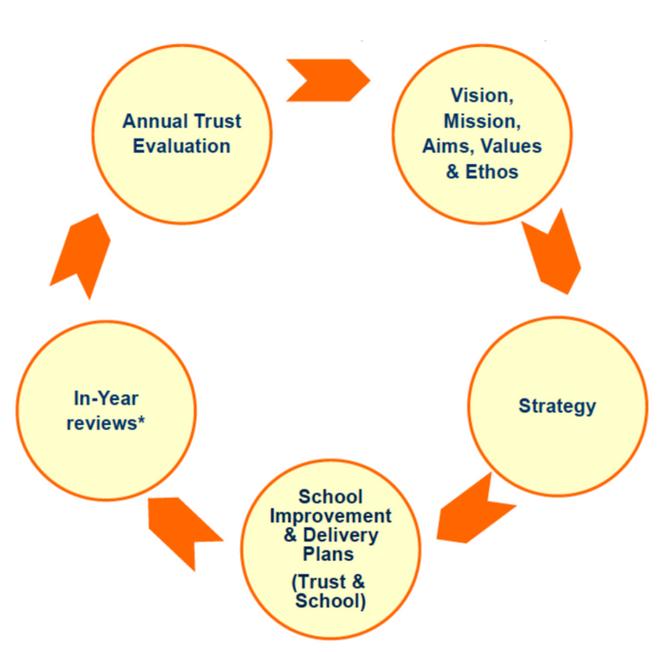
Our School Improvement Model is led by our Executive Directors and quality assured by: internally & externally led Trust Peer Reviews, externally led Challenge Partners Quality Assurance Reviews, CEO Visits, Academy Committee meetings, LEO Education & Standards Committee meetings and Trust Board meetings.
Our Trust’s Quality Assurance and Accountability Frameworks enable us to monitor the impact of our school improvement; we know our schools quantitatively and qualitatively. Our local Academy Committees have their sole strategic focus on the quality of education provided by their school. They have a relentless focus on safeguarding, pupil outcomes, inclusion, the curriculum, pupil voice and stakeholder engagement; the Trust’s Education & Standards Committee monitors the progress and impact of our School Improvement Strategy.
The effectiveness of our School Improvement Strategy is measured against our ‘What Makes a Good LEO School?’ and recorded on a KPI Dashboard which is used by school leaders and trustees.
What Makes a Great LEO Academy?
26
Teaching and Learning Strategy
Our Teaching & Learning Strategy is at the heart of all aspects of our Trust’s school improvement work; it supports the delivery of our mission, vision and aims At LEO Academy Trust, we deliver an enriched curriculum, offering a wide range of opportunities for every pupil, at every school. We believe in diversity, equity and inclusion in approach, but consistency in outcomes. Each of our schools implements a curriculum which meets the needs of their local community and is aligned to the mission, vision, values and aims of the Trust. The effectiveness of our School Improvement Strategy is measured against our LEO Pupil Outcomes.

Central to our Teaching & Learning Strategy, and an integral part of the curriculum at each school, is the development of deep learning: high quality teaching that enables students to embed new learning into their long term memory.
Our pupils are:
Active Citizens in a Global Community
LEO pupils are local, national & global citizens; they have a strong sense of identity, respect and value the importance of diversity & inclusion and make positive contributions to their community.
Self-Directed, Collaborative & Confident Learners
LEO pupils develop independence, confidence and character through sport, creativity, performance, volunteering, and experiencing the world of work.
Innovative Learners who pursue Excellence
LEO pupils innovate, develop digital skills & maximise the use of technology; their performance in maths, English, science & computing exceeds their peers nationally
Healthy Learners who make small changes with a big impact
LEO pupils have the physical, emotional & social literacy to overcome challenges. They communicate effectively.
Leaders of today; life long learners
LEO pupils develop critical thinking, leadership skills, life skills, cultural capital & financial literacy.
Curriculum planning encompasses different areas of connectivity; broad ideas, subject to subject, pedagogical and concept links ensure that knowledge (substantive) and skills (disciplinary) are learned and then embedded into long term memory and that pupils can build on these progressively to reach agreed end points. There are clear, coherent and sequenced learning objectives and outcomes in place for each year group and these are organised to enable children to build on their knowledge and skills progressively each year. Lessons enable pupils to embed learning. They include the following fundamental approaches:
Feedback with clear next steps which have been acted upon by the children and any errors or misconceptions are addressed.
Retrieval practice (or generating answers to questions on previous learning).
Metacognition and self-regulation, to include explicit instruction (e.g. I do, we do, you do).
Adaptive teaching.
Group activities and paired work (oracy)
Technology carefully used to enhance learning and opportunities across the curriculum. Modelling/explaining and questioning.
Most of these strategies ensure that learning is moved from the short term memory and embedded into the long term memory. The context and relevance for children in each school is considered when planning relevant learning and meaningful wider opportunities so as to maximise each child’s ‘cultural capital’.

The curriculum at each school in our Trust draws on the knowledge of successful pedagogies of the past, while maximising the opportunities of the Cloud in the 21st Century. Our staff build knowledge and practices that foster deep learning and whole system change. Staff are empowered by innovative appraisal and professional development opportunities.

28
Our Teaching & Learning Strategy draws upon Michael Fullan’s six Global Competencies for Deep Learning, research by the World Education Forum and a report from the ten leading global CEOs. It aims to create ‘future-ready’ students, by delivering opportunities for pupils children to develop:
Creativity; Communication; Citizenship; Critical Thinking, Character; Collaboration.
It connects pupils with the issues most concerning young people in the 21st Century. Areas such as:
Sustainability; Ethical, active citizenship; Digital skills, technology and flexibility; Entrepreneurial activities; Mental health & wellbeing.
This is achieved through our LEO Learner Profile, a set of ten characteristics which underpin our curriculum, empowering all children to embrace our LEO Pupil Outcomes. LEO Learners are:
Conscientious
Empathetic
Critical Thinkers
Determined
Curious
Forward Thinking
Effective Communicator
Reflective
Resilient
Open-minded
Evidence - based research used to inform this strategy
Busch, B., Watson, E. (2021). The Science of Learning: 99 Studies That Every Teacher Needs to Know. Second Edition. United Kingdom: Taylor & Francis. Jones, K. (2021). Retrieval Practice: Research and Resources for Every Classroom: John Catt Educational Limited.
Kara, B. (2020). A Little Guide for Teachers: Diversity in Schools. United Kingdom: SAGE Publications.
Lovell, O. (2020). Sweller’s Cognitive Load Theory in Action. (n.p.): John Catt Educational Limited
Mayer, R.E., (2005). Cognitive theory of multimedia learning. The Cambridge handbook of multimedia learning, 41, pp.31-48.
Sherrington, T. (2019). Rosenshine’s Principles in Action. United Kingdom: John Catt Educational, Limited.

Key links:
Ofsted (2019). Education inspection framework - Overview of research
Michael Fullan’s 6 C’s of Deep Learning
EEF blog: The Five-a-day approach
EEF Five-a-day for SEND (adaptive teaching)
Updated July 2023
30
Curriculum Strategy
Curriculum intent
At LEO Academy Trust, we aim to foster a lifelong love of learning, through an evidenceinformed curriculum which is ambitious for all, (particularly the most disadvantaged and those with special educational needs and/or disabilities (SEND) or high needs), balanced, well-sequenced and diverse. This enables pupils to develop 'cultural capital.' The curriculum at each school is well-structured, with digital skills and technology used to transform teaching and learning.

Each school covers the national curriculum and the EYFS framework as a starting point and is enhanced by our vision of Learning, Excellence and Opportunity. LEO prides itself in offering an extensive range of extra-curricular and enrichment activities for learners within and beyond LEO Academy Trust.
The academic achievement, wellbeing and character development of our learners is at the heart of our ‘curriculum offer’ and we regularly review our provision to ensure that it is relevant, engaging and challenging for all.
We pride ourselves in developing the whole child and preparing them for the next stage of their learning as well as being prepared for life in the twenty-first century. We want every pupil to achieve well, learn together, celebrate diversity and be globally aware.
Curriculum implementation
Curriculum and pedagogy
Curriculum planning enables learners to make connections and interconnections in order to ensure that knowledge (substantive) and skills (disciplinary) are learned progressively to reach agreed end points. Lessons enabling retrieval practice (reviewing previously taught objectives), formative assessment, metacognition and opportunities for teachers/support staff to address misconceptions, means that learning is moved from the short term memory and embedded into long term memory so that learners know more, remember more and do more. The context and relevance for learners in each school is considered when planning relevant learning and meaningful wider opportunities, so as to maximise each child’s ‘cultural capital’ and knowledge of British values.
The curriculum at each school in our Trust draws on the knowledge of successful evidence- informed strategies and should be used in conjunction with our LEO Teaching and Learning Strategy. Staff are empowered by innovative performance management and extensive professional learning opportunities for staff at all levels
Curriculum principles:
Each school has a curriculum that is ambitious for all (through adaptive teaching and other strategies), giving all learners the 'cultural capital' they need for the future. The curriculum is structured and sequenced from EYFS to year 6, with knowledge of KS3, so that pupils can build an increasingly rich schemata as they move through the primary years Thus preparing them for current and future learning
At each school, the curriculum is taught using the key aspects of our LEO Teaching and Learning Strategy. For example, feedback, retrieval practice, metacognition, adaptive teaching, oracy, technology, including assistive tech and modelling/explaining and questioning.
Learners demonstrate detailed knowledge (substantive) and skills (disciplinary) across the curriculum which progresses as learners move through the curriculum. In EYFS, teacher questioning is used to prepare pupils for future learning.
Learners have opportunities for explicit and implicit learning of new vocabulary across the curriculum.
Reading is at the heart of the curriculum, through reading across the curriculum, promoting a love of reading and reading aloud to pupils. Pupils read widely, speak and write well across the curriculum.
The teaching of younger readers focusses on a robust systematic synthetic phonics programme, with materials that match their phonic knowledge. This is also continued into KS2 for learners who need to rapidly catch up
Opportunities at LEO (beyond the national curriculum and EYFS framework)
We pride ourselves in offering a wide range of extra-curricular activities and enrichment opportunities for all of our pupils. Our pupils will have many opportunities to enhance and enrich their learning throughout their time at LEO Academy Trust. There are activities on offer to suit everyone which also provide openings for pupils to discover their interests and find where their talents lie. We believe that school is about so much more than learning how to read and write and we endeavour to provide our pupils with opportunities that they may not have exposure to in everyday life.
32
Our forward-thinking digital strategy has transformed teaching and learning for pupils across the Trust, helping to improve accessibility, encouraging pupils’ confidence and creativity when using technology and supporting staff to maximise technology in the classroom At the heart of this strategy is the Google Chromebook 1:1 programme, which ensures each pupil in Key Stage Two is equipped with personal Chromebooks to use in lessons and at home to continue their learning.
There are numerous clubs on offer in all schools, which vary from music and sport to cooking, chess and arts clubs. We want our pupils to learn new skills, develop self-belief and selfconfidence, and have fun!
Curriculum impact
Our LEO pupil outcomes:
Active Citizens in a Global Community
LEO pupils are local, national & global citizens; they have a strong sense of identity, respect and value the importance of diversity & inclusion and make positive contributions to their community.
Self-Directed, Collaborative & Confident Learners
LEO pupils develop independence, confidence and character through sport, creativity, performance, volunteering & experiencing the world of work.
Innovative Learners who pursue Excellence
LEO pupils innovate, develop digital skills & maximise the use of technology; their performance in maths, English, science & computing exceeds their peers nationally
Healthy Learners who make small changes with a big impact
LEO pupils have the physical, emotional & social literacy to overcome challenges. They communicate effectively.
Leaders of today; life long learners
LEO pupils develop critical thinking, leadership skills, life skills, cultural capital & financial literacy.


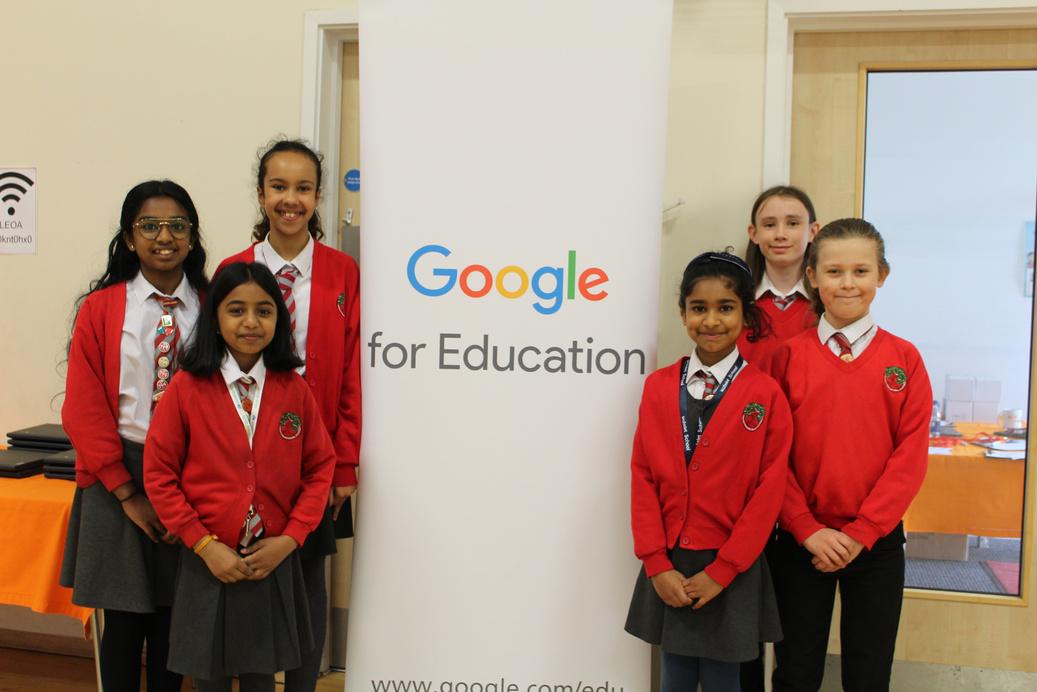



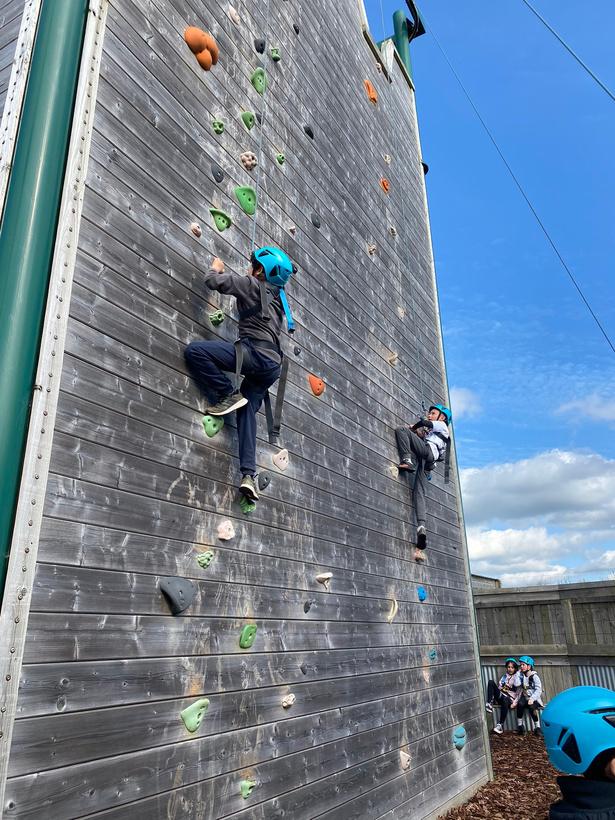
34
LEO SEND Intent, Implementation and Impact Statement
At LEO Academy Trust, we always champion inclusivity and equality in our schools through education. LEO Academy Trust’s underpinning aims of ‘Inclusion for all’ and our value of ‘community’ reflects our commitment to embracing and celebrating diversity in all that we do.
LEO Academy Trust aims to embed equality of opportunity, and create an education that provides pathways that reduce wide variations in education outcomes for protected and vulnerable groups. Together we can help everyone understand and be understood.

Diversity is highly valued and Neurodiversity is a human right. LEO Academy Trust aims to provide appropriate and professional support to everyone who has protected characteristics.
It is our intention that children with special educational needs and/or disabilities (SEND) are supported to achieve their potential through access to quality first class teaching and appropriately adapted or differentiated learning activities and approaches.
Our long term goal is to help equip our children with the knowledge and skills they need to live fulfilling and independent lives, achieving the goals and aspirations that our children set for themselves, with the support of all those around them.
Intent:
To provide full access for all pupils to a broad and balanced curriculum;
To use current research to underpin strategies to support SEND children;
To ensure that the needs of pupils with SEND are identified early;
To ensure these pupils are assessed, monitored, planned for and regularly reviewed to improve outcomes and therefore make the necessary progress;
To enable pupils with SEND to achieve their potential;
To ensure pupils are prepared for adulthood;
To ensure SEND pupils are equipped for life in the wider community;
To ensure parents/carers are fully engaged in decision making, assessing progress and determining goals;
To gain the views of the child and enable them to have a voice;
To take into account the views, wishes and feelings of pupils/parents/carers;
To provide advice and support for all leaders and staff working with pupils with SEND;
To identify and refer pupils to the appropriate services where a need has been identified;
To implement the advice of experts and professionals involved from outside of the school;
To identify and direct parents to the best providers of support;
To provide detailed information about the arrangements for identifying, assessing and making provision for pupils with SEND;
To support key transition points to allow them to be as smooth as possible
LEO SEND Strategy, January 2023
SEMH Support at LEO LEO SEND Package and Pathways
Implementation:
We will implement and regularly review the SEND policy, ensuring its effectiveness and adjusting it accordingly.
All leaders are leaders of SEND and ensure this is at the forefront of practice.
Our EYFS Lead and staff will identify children in EYFS and those that join the school later, who may have additional needs as early as possible and the SENDCo will facilitate a plan to ensure the appropriate level of support is planned for.
The school SEND register is kept up to date and regularly reviewed, including data on primary needs, diagnosis etc
The SENDCo will initiate and complete relevant paperwork for referrals to other services or applications for funding e.g. Education, Health and Care Plans (EHCP), GRIPs, Inclusion funding, Speech and Language Therapy referrals and other health referrals etc.
We will coordinate support for children with special educational needs both at home and in school to ensure a holistic approach through regular meetings with parents to capture their views as well as those of the child.
The SENDCo will liaise with external agencies and help the staff to implement their strategies and advice.
We support teachers and teaching assistants with training and expertise to ensure the best outcomes for children with SEND.
Our pupil wellbeing and SEND provision is used to implement therapeutic interventions and support parental and pupil SEMH needs.
Parents of SEND children are supported through relationships, FSW coaching and support, signposting and parent workshops.
The SENDCo will attend LEO network meetings and other courses to keep up to date with current issues, attend regular CPD, research key SEND areas and disseminate relevant information to staff.
36
The SENDCo will report to academy committees on the progress of SEND children and the current strengths and areas in need of developing.
The LEO Inclusion lead reports to the Trust board on the progress of SEND children and the current strengths and areas in need of developing.
A flexible approach to the curriculum is taken for pupils with SEND who may need a more hands on experiential approach to learning e.g. Forest Schools, Nurture, visits to the local shop, walks around the local area etc.
Regular learning walks and book looks will take place to ensure that SEND children are well supported and making progress as well as termly tracking Meetings with Senior staff.
We will strive to ensure that children are fully prepared for the next phase of their learning and that they develop appropriate life skills to help them live with growing independence.
That children will be prepared mentally and socially for the challenges that the future may bring.
LEO SEND Teachers Expectations
Impact:
As evidenced by questionnaires, feedback, emotional screeners, internal and external monitoring, quality assurance, data and reports.
Our SEND children are happy, safe and have their needs met.
SEND children are adapted, adjusted and differentiated for to ensure, where possible, seamless access to the curriculum.
We develop safe learning environments where difference and diversity is celebrated and all pupils are included.
Parents feel listened to, supported and play an important role in decision making about their child.
Through a whole child approach, those children with social, emotional and mental health needs are supported to succeed.
Children have a voice and feel heard – they are involved in decisions made about themselves.
Staff are positive and have high standards for all children including those who have SEND and create effective learning opportunities for all. Early intervention means that we can close emerging gaps early and/or identify needs and implement support quickly.
Positive relationships between staff, pupils, parents and wider professionals are paramount. These relationships are used to pre-empt and prevent unmet needs.
Financial Strategy
Our Trust’s financial strategy is aligned with the Trust’s overall strategic plan. This will ensure that the Trust’s financial resources are used in a way that supports the achievement of its overall goals. In order to achieve this we:
Have a sustainable business model that supports the delivery of pupil outcomes.
Have good governance in place, to monitor compliance and the trust's financial health
Understand our Trust's risk appetite which supports our decision making.
Use data to make informed decisions by tracking our academies financial performance over time, benchmarking spend against other schools, and using this data to identify areas where efficiencies can be made and value for money.
Have developed a diversified income stream to support the delivery of our pupil outcomes and our wider opportunities.

Focus on efficiencies without compromising on quality.
Invest in our staff - Our staff are our most important asset, so it's important to invest in their development and well-being. This will help to improve morale and productivity, and ultimately lead to better outcomes for pupils.
Be transparent and accountable by keeping the trust's stakeholders informed about its financial performance, and to be transparent about how it's using its resources. Maintain adequate reserves, to support our financial stability and protect our ability to deliver high-quality education.

38
Risk Management Strategy
LEO Academy Trust has a robust risk management framework in place which ensures that risk is identified and reported at all levels of the organisation. This helps to protect the trust from financial losses, damage to reputation, and other risks.

Our risk management will be aimed at ensuring that the Trust achieves its objectives in the most effective way and those resources are directed at those objectives It will not be seen as a separate exercise but as the means of best achieving the Trust’s objectives. This risk management strategy has been designed to provide a framework for managing and reporting the risks the Trust faces and ensuring its objectives are achieved in the most effective way.
It has been designed for use by all staff of the Trust and it serves to:
Communicate the strategies for managing risk within the Trust
Identify and evaluate risks which could prevent the Trust from achieving one or more of its strategic aims, objectives or delivery targets, or make their achievement substantially more difficult.
Assess the likelihood of such risks occurring (high, medium, low) and the potential impact of such occurrences with particular reference to the areas of finance, reputation and planning/operations.
Enable decisions to be taken on how much risk to accept, the actions/controls applied to avoid or mitigate the likelihood of such circumstances arising, to transfer risk or insure against the consequences and assign responsibility for implementation.
The Trust’s overall risk management plan is aimed at:
Protecting students, staff and assets.
Managing risk in accordance with best practice and reducing the cost of risk. Anticipating and responding to changing social, environmental and legislative requirements.
Raising awareness of the need for risk management.
Integrating risk management into the culture of the Trust. Adopting legal compliance as a minimum standard.
We also have a clear assurance map and risk registers in place to support leaders at all levels to make strategic decisions around risk management.

40
Growth Strategy 2022-2025
LEO Academy Trust is a well-established, respected Multi Academy Trust in South West London and Surrey, currently consisting of nine primary schools, with almost 4500 children, 600 members of staff, and a combined annual GAG / income of over £28 million.

We have reviewed how our context has changed and how the national and local agenda has moved on. We have learnt about ourselves and our organisation and we have considered new risks and opportunities. We have analysed our growth plans and considered the capacity needed in order to achieve sustainable and impactful growth.
The ambition of the Trust is to grow in order to further increase opportunities for our pupils and staff, to both create efficiencies and value for money central services and also further develop a highly responsive and effective school improvement model This intention is driven by moral integrity and a mission to make a positive difference to the lives and life chances of our pupils, their families and communities. We will continue to extend the Trust’s reach and impact in the local community by planned growth over the next 5 years. We will achieve this growth through structured responses to membership requests.
A key aim of the Trust is to have a balance of schools at different starting points in their journey of improvement, therefore creating effective capacity for sponsorship. We will ensure that we continue to have high performing schools as part of our family and that all schools are on the journey to high performance.
Next 12 Months
In the national / local context of schools being asked to further consider partnerships, we expect to continue to grow over the next 12 months This would potentially mean that, by the start of the academic year 2024/25, we could have up to 12 primary schools in the Trust.
We plan to explore Trust Partnerships and Full Membership with up to 7 further schools in South West London or Surrey over the next three years. We will also consider trust mergers with smaller MATs or Single Academy Trusts in South West London or Surrey.
Options
In the national / local context of schools being asked to further consider partnerships, we expect to continue to grow during the period 2022 - 2025.
Guiding Principles for Growth
1
2.
3.
To provide our USPs and innovative LEO curriculum offer to more pupils & schools
To provide further opportunities for our current pupils & staff.

To ensure the Trust remains financially sustainable, with sound operational foundations.
We are committed to a growth strategy that is driven by a number of factors*:

Sustained Performance
Sustained high performance and outcomes for existing schools.
Optimal Number
Building a MAT of between 12-16 primary schools, over the next 3 years.

The number is flexible depending upon prevailing circumstances We would also welcome the opportunity to add special school provision within our Trust.
Location
Sustaining a manageable and coherent geographical area across SW London and Surrey, within approximately 60 minutes’ drive of our central offices in Cheam.
42
Building capacity and expertise
Building school improvement and operational capacity and expertise to enable all schools (current, new converter and sponsored) to make rapid and sustainable progress and move to / beyond outstanding as soon as possible.
Improving standard
Sponsoring less than good schools to join LEO, in proportion to our capacity to deliver improvement.
Power in numbers
Spreading further into South-West London and Surrey, but standing ready to respond particularly to the needs of schools in our immediate locality.
Sound strategic oversight
Controlled growth according to a coherent plan and pace approved by the Regional Director for London, and Regional Director for the South East.
Growing good/outstanding schools
Using our capacity for further improvement to drive standards ever higher in all our schools.
*Whilst the strategic plan outlines our general intentions for growth, we acknowledge that this will depend significantly on a number of changeable factors such as sponsorship needs, buy-in of converters and due diligence.
Realistically, the Trust considers growth in one academic year to be no more than 3 additional schools in total, assuming that the balance of new schools brings additional capacity.
Growth Criteria
The prerequisite for schools joining the Trust is that they can, over time, add value to our educational offer for children and young people in our LEO schools. We recognise that schools will join us with differing levels of current effectiveness; some may require significant additional support at the point of joining and will be a net beneficiary until they can demonstrate good or better effectiveness. However, the experience of supporting these schools provides valuable professional development opportunities for staff at other Trust schools (teaching and business staff) and we recognise that all schools, regardless of current effectiveness, will have something to offer within or across clusters of schools. With this in mind, the following principles will guide our growth strategy:
Contribution
All convertor academies or existing single academy trusts (i.e. those deemed good or better by Ofsted) will be required to demonstrate what and how they will be able to contribute to the growth and development of the Trust. This capacity will be identified at the initial due diligence phase
Commitment
All sponsored academies will be required to commit to engaging with the Trust’s support and challenge. LEO will always need to be satisfied that all new schools will fully engage and be fully committed to its vision, ethos, systems, and ways of working across the Trust. This commitment will be tested at the initial due diligence phase.
Sustainable growth
Typically, no more than 3 schools will join the Trust in any single academic year. Maximum of one Free School every two years.
Sponsored academies
Sponsored / requires improvement academies will be identified through local intelligence or considered on the recommendation of the Regional Director and after due diligence by the Trust Executive Team, which will make its recommendation to the LEO Board of Trustees
Located in South-West London or Surrey
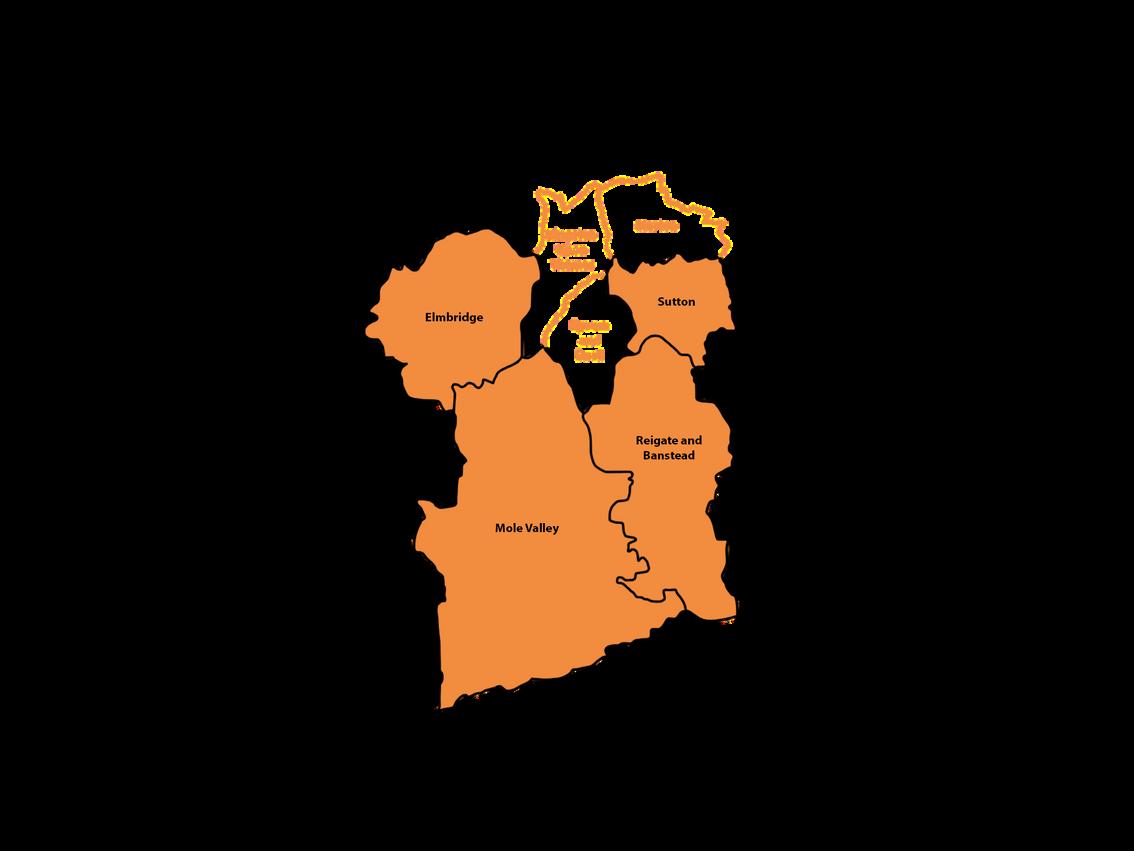

All schools joining the Trust will be located so that they can fully integrate and be readily involved in all whole-Trust improvements and developments.
Due Diligence
The Trust Executive Team is required to scope all new schools potentially joining the Trust and propose these, informed by a risk based analysis, for ratification by the Board.
44
Financially Viable
All schools will need to prove that they are financially viable or that the leadership/structural model adopted on entry is financially viable. If a recovery plan is in place, this must be robust and approved by both the Regional Director and the Board of Trustees prior to the school joining the Trust.
Capacity for School Improvement and Growth
At LEO Academy Trust, we have a proven track record of significant school improvement in our primary schools. Our capacity for school improvement and Trust growth includes:
Board of Trustees
The Board of Trustees is a strong blend of experienced and new members with a broad range of professional knowledge and skills, enabling them to robustly hold the Trust leadership to account
Executive Leaders
The Trust has three experienced Executive Principals, who have led schools to Outstanding over the last five years. Our Executive Leaders also support school improvement in Surrey and the London Borough of Sutton. Our CEO led the transformation of our founding sponsor school as Executive Principal and is a Senior Partner at Challenge Partners and a member of theTeaching & Learning Advisory Panel at LGfL. Our COO has led the full centralisation of the Trust’s business functions and supports the DfE in a mentoring capacity.
KS2 Standards
KS2 standards at all our established schools have all been at or above the national standard for at least three years. The primary curriculum is highly ambitious, enriched and bespoke to each school.
School Improvement Processes
Established and effective school improvement processes have led to swift, sustainable improvements in all our schools
Network Learning Communities
Our NLC (Network Learning Communities) meet monthly. They are used by leaders and teachers to share effective practice and to work together on school improvement challenges. They provide support, challenge and active research opportunities.
Business and Operational Network Learning Communities
Business Operational NLC meetings for all our business & operational leads are held monthly
Opportunity Hub and Inclusion and Wellbeing Hub Teams
The growth of our central education teams, with some school-based senior and middle leaders having Trust-wide leadership roles as part of their remit, means a ready supply of expertise to address issues and risks in a timely manner.
LEO Pupil Outcomes
Ongoing work on a collaborative framework which underpins our schools’ curriculum, our LEO Pupil Outcomes, allows each school to retain individuality and cultural context, whilst delivering a consistent and outstanding quality of teaching across the curriculum.
Strong Governance
Robust governance structure and Trust Director of Governance & Compliance providing Trust wide support and oversight, and centralised policy administration.
Central Support Services
Strong operational and system leadership in place centrally to support: school improvement, HR, finance, operations, capital projects, central contracts, health and safety, data, marketing, communications and IT.
Expansion of LEO Academy Trust’s Central Services
HR
We offer a comprehensive HR and payroll service to all the schools within the Trust, including a variety of administrative payroll and HR operational functions, which ensure a consistent and equitable approach to HR is applied across the Trust. With a dedicated online payroll advice service along with a dedicated HR email address for all HR cases and advice enquiries, this streamlined approach ensures that principals are able to discuss matters in a confidential and timely manner, receiving expert guidance and strategies to deal with a vast array of HR casework and policy issues.
Regular Trust Senior Leadership Team meetings allow all principals an opportunity to raise HR matters at Trust level, and for a balanced and considered response from the Executive Team to be provided. From administrative payroll issues to professional HR Advice and case management starting at the informal stage and up to formal outcomes and appeal panels,
46
our schools are supported and guided with the most up to date information and statutes available, providing a level of professional expertise that enhances senior leadership decision-making and understanding.
Specially designed training has been centrally developed for Trust leadership to develop their HR knowledge and confidence, with central funding available to schools to access this CPD for staff.
Governance
Led by Chair Dean Clark, the LEO Board of Trustees is a varied and experienced team of professionals, offering a wide array of professional expertise and diverse backgrounds. The Trust has a skilled Director of Governance & Compliance who trains, challenges and supports all levels of governance in the Trust.
Finance
LEO Academy Trust offers its schools a centralised finance service, reducing the burden upon them by processing invoices and placing orders. The Chief Operations Officer (COO), who leads the central business team, works closely with the CEO and our Executive Principals to shape and maintain school budgets, ensuring that they are in a balanced position, effectively delivering improvements, and that they are sustainable
The Trust recognises that all growth comes at a financial cost. LEO is prepared to invest in growth, and builds funding into its annual budget to recognise the cost of changes and support each new school may require. The Trust Board agrees this amount on an annual basis, when setting its annual budget each Summer.

Business Operations
LEO Academy Trust offers Business and Operations support and advice to all schools within the Trust.
The Trust has so far provided procurement services and has centralised in the following areas:
Payroll service that gives the Trust an overall view on all pay and HR contracts. Finance service that centrally manages the Trust payments, bank reconciliations ordering and procurement.
LEO Catering service which delivers good, consistent meal provision for all pupils attending Trust schools.
Budgeting software to achieve a far more accurate and consistent budget for better reporting and monitoring.
Business and asset management tool to track all statutory maintenance and assets of the Trust.
Centrally managed lettings service to ensure the Trust maximises the use of the buildings and assets.
Extensive wrap around care service to support parents with their childcare.
Centralised IT support team providing IT services directly to all users within the Trust as well as an IT procurement service to achieve best value for money.
Marketing and Communications
LEO Academy Trust operates its own marketing and communications strategy and functions. The Executive Officer, working alongside the Executive Team, has developed a Communications Strategy that will help to create a consistent and joined-up approach to marketing across the Trust over the coming years. A Trust-wide marketing and communications network aids in the development of consistent and effective marketing and internal and external communications through best practice and peer support. The Trust has employed two Digital Marketing Administrators and one Digital Marketing Apprentice who are part of the central Business Team.
Growth Proposal
LEO Academy Trust is committed to growth that is sustainable and that ensures the whole organisation benefits immediately as new schools join. In order to do this, we have established a pattern for growth whereby the right infrastructure is in place ahead of the requirement for additional support and challenge from schools. We intend to continue with this successful strategy using our own resources where possible.
48
Digital Strategy
LEO Academy Trust is committed to impactful technology use for all stakeholders and over the past five years, the Trust has been highly successful in supporting the effective use of technology. Having developed the use of impactful technology considerably during periods of school closure due to Covid-19, the Trust has made accelerated progress with the use of digital technology to develop teaching and learning and back office functionality. In order to continue to provide technology-enhanced learning opportunities and to be an efficient organisation, the Trust has reviewed its Digital Strategy in light of the extensive progress it has made. Below are the 5 pillars which underpin the use of technology across the Trust.

FivePillars
Astheemployerofchoiceforpotentialemployees,flexibleworkingisencouragedinall businessfunctions.Systemsandprocessesdonotpreventstafffromworkinginspecific ways.
Whenreviewingsystems,processesandfunctionality,acloudfirstapproachisalways championed.
CPDandstaffsupportisprovidedinthemostefficientmanner,ensuringthatstaffare givenqualityprofessionaldevelopmentwhilstbeingmindfuloffulfillingtheirroles. Workinginthecloud,enablesstaffacrosstheorganisationtoworkflexiblytoincrease productivityandcollaborateinternallyandexternally.
TeachersacrosstheTrustwillbeinquisitiveandintriguedaboutexploringnewand innovativeapproachestotheuseoftechnologyintheclassroom.
Childrenareindependentlylearning,utilisingtechnologywhereappropriate Childrenareincreasinglybecomingcontentcreators,aswellasconsumersofonline content.
Thecultureacrosslearningenvironmentsinallschools,encourageschildrentohave ownershipoftheirlearningandtoindependentlyselectandusetoolswhichhelpthem tolearn.
1.Anywhere,anydevice,anytimeforallstakeholders.
2.Childrenareindependentlearners,selectingappropriate technologytohelpthemlearn.
3. Every school is a blended school, utilising the benefits of 1:1 devices.
Children and staff across the organisation will have a seamless learning experience regardless of the location of learning.
Pupil outcomes and opportunities are constantly developing, using digital technologies to engage and enhance learning where appropriate

All children, including the most disadvantaged and those with SEND, are provided with a wide range of tools and resources to support them at school and at home. Staff across the organisation are provided with a wide range of high quality CPD and support, enabling them to constantly deliver innovative practice.

4. Technology is well used to integrate parents into all aspects of school
life
Parents will be able to access children’s learning to support further at home Parents will be able to flexibly access information and training through the use of technology.
Parents will be more aware of children’s behaviour at school through virtual systems. Through our effective use of technology, more Parents will be able to remotely participate in events including Parent Consultations Evenings, open days and Parent workshops.
5. AI and Automation drives efficiency across the whole organisation.
Staff across the organisation will seamlessly be able to look at aggregate data, whilst also considering granular data on individual specifics to support school improvement. A cloud first approach to systems and processes, will ensure that resources are used to maximise pupil outcomes and opportunities
Data and systems will be aligned across the Trust, ensuring economies of scales and collaborative working can allow.
All technology will be used to conduct complex data analysis and evaluation. Consequently, staff are able to work efficiently, making data informed decisions as part of their roles.
o a
50

Professional Learning Strategy
Our Professional Learning Mission
To foster a culture of continuous growth and learning, providing high quality professional learning opportunities that empower colleagues to enhance their knowledge, skills, and expertise.
Our Professional Learning Vision
Learning Excellence Opportunity

Great Learning Communities
Excellence for All:
Endless Opportunity:
To create a collaborative and supportive environment where colleagues can share expertise, exchange ideas, and learn from one another
To provide excellence for all by offering high quality, evidenceinformed professional learning opportunities
Our Professional Learning Values
Weencourage colleaguesto continuetheir learningand developmentefforts, eveninthefaceof challenges,providing highqualitysupport tohelpthemto reachtheirgoals
Wepromotea collaborativeand inclusiveenvironment wherecolleagues valueand appreciatetheideas andexperiencesof others.
Weencourageour colleaguesto explorenew possibilities,think outsidethebox,and envisionnew solutions





To deliver a wide range of continuous growth opportunities for all, supporting colleagues to embark successfully on their chosen career pathways
Wepromotea cultureofcontinuous improvement,where colleaguesare dedicatedto enhancingtheirown knowledgeandskills andthatoftheir peers
Wefosteraculture ofencouragement byprovidingarange ofopportunitiesfor colleaguestowork collaboratively,seek advice,andreceive supportivefeedback.
52
Our Professional Learning Principles*
Our professional learning principles have been developed to help to close the gap between our strategy design and delivery. The principles will provide all stakeholders with clear, robust and practical guidance as to what makes effective professional learning and how to achieve this. We understand that our principles are only as good as their consistent application and so we aim to ensure that they are effectively communicated to and understood by all members of our community.
To support colleagues to tailor development to the task and their needs and where possible their teams and setting.
Own it
To motivate colleagues to invest effort in all these processes and follow through any commitments they make.
To help colleagues to develop an understanding of the mechanics of particular strategies
To help colleagues to develop a bank of strategies around what these mechanics look like in practice
To provide opportunities to engage in rehearsal to help contextualise these strategies for a particular context
Share it
To support colleagues in building fluency in these strategies and to embed them in the routines of their work
To encourage colleagues to share their learning with others both inside and outside of the trust
* PL Principles have been adapted using the key ideas explored in: Developing Great Teaching, Peps Mcrea (2023) and the Effective Professional Development Guidance Report, EEF (2021)
Our Professional Learning Strategy Key Objectives:
Our key objectives outlined below will provide all stakeholders with direction, focus and a clear roadmap for achieving our desired outcomes. These objectives will be reviewed and refined on a regular basis to ensure they remain relevant, measurable and achievable.
Fit it
Build knowledge Develop techniques Motivating staff Embed practice
Get it See it Try it Keep it
To continue to develop our professional learning communities where colleagues can share expertise, exchange ideas, and engage in ongoing learning opportunities.




To create a shared understanding of the key mechanisms which support effective professional development.
To develop clear, comprehensive professional learning plans at individual, school and trust level.
To rigorously evaluate the impact of professional learning opportunities both in the short term and the long term.
Objective 1 Objective 2
3
4
Objective
Objective
54
LEO Professional Learning Bibliography

People Strategy
At the centre of a world of change, uncertainty, opportunity, and hope, sit our children and young people - waiting to shape all of our tomorrows. They are our hope and our inspiration. They are why we get out of bed in the morning.


LEO Academy Trust believes in giving the next generation the very best start in life possible. They deserve it, and our communities deserve it. Whatever their background or circumstance, we believe every child and young person should be supported to fulfil their potential, maximise their talents, and grow in an environment that provides both security and inspiration.
Our children and young people depend on every single adult who works in our trust and its schools to make that a reality We are the people who, together, will give them the gift of education, of hope, and of self-belief upon which their futures will be shaped. Every person working in our trust and its schools has their role to play in this. It is our shared endeavour. Working with our children and young people is the greatest privilege and the greatest responsibility. That is why we invest in and support our staff. Only with you can our ambitions for children and young people become a reality.

56
Our vision as an employer
Everyone who works with us should feel they make an impact
Working for LEO Academy Trust is a vocation. Each one of us is committed to influencing the lives of others in a positive way, making a meaningful difference as we do so.
As a trust, we believe that:
The health and wellbeing - of our staff and our pupils - matters more than anything else;
Diversity and inclusion make us stronger and open our minds to the world and each other;
We must invest in the development of all our staff, recognising their skills, talents, ambitions and potential;
We must seize the potential of technology bridging barriers and opening up opportunities for all;
We serve, and are accountable to, our communities: children, young people, and their families;
By modelling environment sustainability we help shape an important legacy to the next generation.
Our ethos as an employer: TEAM
Together
We are all one team; we share the same Vision, Mission, Values & Aims
Expectation
As one team, we have the same expectations of each other & our pupils. We believe in diversity in approach, but consistency in outcomes.
Achieve
We collaborate, we support each other and we achieve together.
Move forwards
We are focused on the future; individually and collectively, we develop and grow.

58
“It’s reassuring to know that if I have any concerns or am feeling worried, that there are people I can talk to, services I can access I feel both secure and valued as an employee of LEO Academy Trust.”
(LEO staff member)
The world is an exciting, busy and vibrant place. The opportunities for children, young people and our staff are endless. Yet, we are also very mindful of the demands and pressures that come with this. We know from our work with the Children’s Society that there is much to do to ensure children and young people in this country can overcome the wellbeing challenges so many of this generation face We want all of the adults in the trust and its schools to be able to live and model healthy, happy and enriching lives - for their own benefit and as beacons to our children and young people. If we get the culture right, children will feel it and benefit from it too.
What does this entail?
The trust board is committed to monitoring and evaluating the wellbeing of staff, benchmarking our organisations with other national leading organisations through our wellbeing questionnaire. We are also committed to embedding the National Governance Associations tool for leaders’ wellbeing; Providing access to wellbeing services for staff, through the Work Place Options scheme, which includes counselling. Establishing a working group of staff at all levels and from across the trust to feed back on and inform our work around staff wellbeing and organisational culture. Developing a coaching culture, that ensures all members of staff will receive access to a coach or mentor who can listen to them and support them where necessary. We will invest in coaching programmes for a wide range of staff who can deliver this. Reducing the burdens and demands on staff by establishing a directory of expert staff across the trust who can answer enquiries or signpost where members of staff need help or advice These experts will be identified through a talent or expertise audit created by the trust and updated annually.
Building on our commitment to flexible and remote working Harnessing the trust’s technology, our ability to share staff and resources,
and our deepening understanding of remote learning.
1. The health and wellbeing of our staff and pupils matters more than anything else.
2. Diversity and inclusion make us stronger.
“No matter what your background, characteristics or abilities are, I feel everyone gets the same opportunities and respect within LEO Academy Trust. Our People Strategy Working Party is focusing on ensuring this is embedded in all practices and decision making.” (Trustee)
Our communities are diverse and reflect a wide range of ethnicities, backgrounds, and circumstances. We strongly believe that diversity and inclusion is the key to being an organisation that inspires, connects with, and maximises the full potential of our communities - including children and young people. One of the most positive things about the year 2020, was the sharp focus brought to the need in our society for equality and opportunity for all.

We want all of our staff and children to know that, whoever they are - and whatever their background - they can reach their potential and live happy, healthy and fulfilling lives. We want all of our staff and children to experience equality of opportunity, access and encouragement. Diversity and inclusion is an essential part of everything we do.
As a reflective organisation, we recognise the need to challenge our current systems, being brave to champion improvement. We will develop this capacity through training, surveys, audits, in depth analysis and positive action.
We are committed, at all levels of our trust, to challenging inequalities It is through this relentless challenge that we will create learning spaces for pupils and team members to feel safe to develop and achieve.
What does this entail?
A commitment to giving everyone in our organisation equity of opportunity;
A commitment to better reflecting our pupil demographic in our workforce;
A commitment to accessibility for all;
A commitment - at board level - to understand and identify where barriers to equity may exist, and to address these in a timely and effective way.
60
3.
“I wouldn’t have been able to get the qualification I’ve always aspired to have, without the financial support and encouragement of the Trust It’s exciting to grow and develop even further to be the best version of me. ”
(Class teacher)
The quality of our schools cannot exceed the talents and expertise of the people who work within them, and we are clear that everyone in our academies makes a difference to the lives and life chances of children and young people. All our staff are important to us, and enable our academies to function on an operational and strategic basis Welcoming staff in a broad range of traditional and innovative roles gives us expertise in areas such as IT, site management, people and opportunities, to support classroom colleagues in the best possible delivery to pupils.
As a trust we are committed to understanding the aspirations of our staff, providing professional development that supports them in their work and in pursuing their professional goals for the future. We know that staff at the entry point in their careers need the support and mentoring of their colleagues, and, all colleagues at LEO Academy Trust are supported to thrive. We are pioneering in our approach and commitment to CPD, because we know that our children and young people deserve motivated and skilled professionals in all departments.
We look for the potential in everyone, and we are invested in developing the leaders of the future, today. We want to see people who have dedicated themselves to the organisation and are passionate about its success grow into the leadership roles, making an even bigger difference to more children and young people’s lives. We believe in the importance of succession planning, and that we are well placed to support staff in their next challenge. We offer opportunities to work across different academies within the Trust, and a commitment to promotion opportunities, encouraging ‘home grown ’ talent.
Our professional development draws on both the highest standard of educational thinking and expertise nationally, as well as connecting our staff across the trust through the sharing of ideas, expertise and support Every member of LEO Academy Trust is an active participant in this.
We must invest in the development of all our staff.
What does this entail?
A suite of training and support for Early Career Teachers (ECTs); ensuring new teachers are fully supported at such a crucial stage in their careers. The programmes also introduce new teachers to our culture of networking and collaboration across our schools - with an emphasis on support and respect.
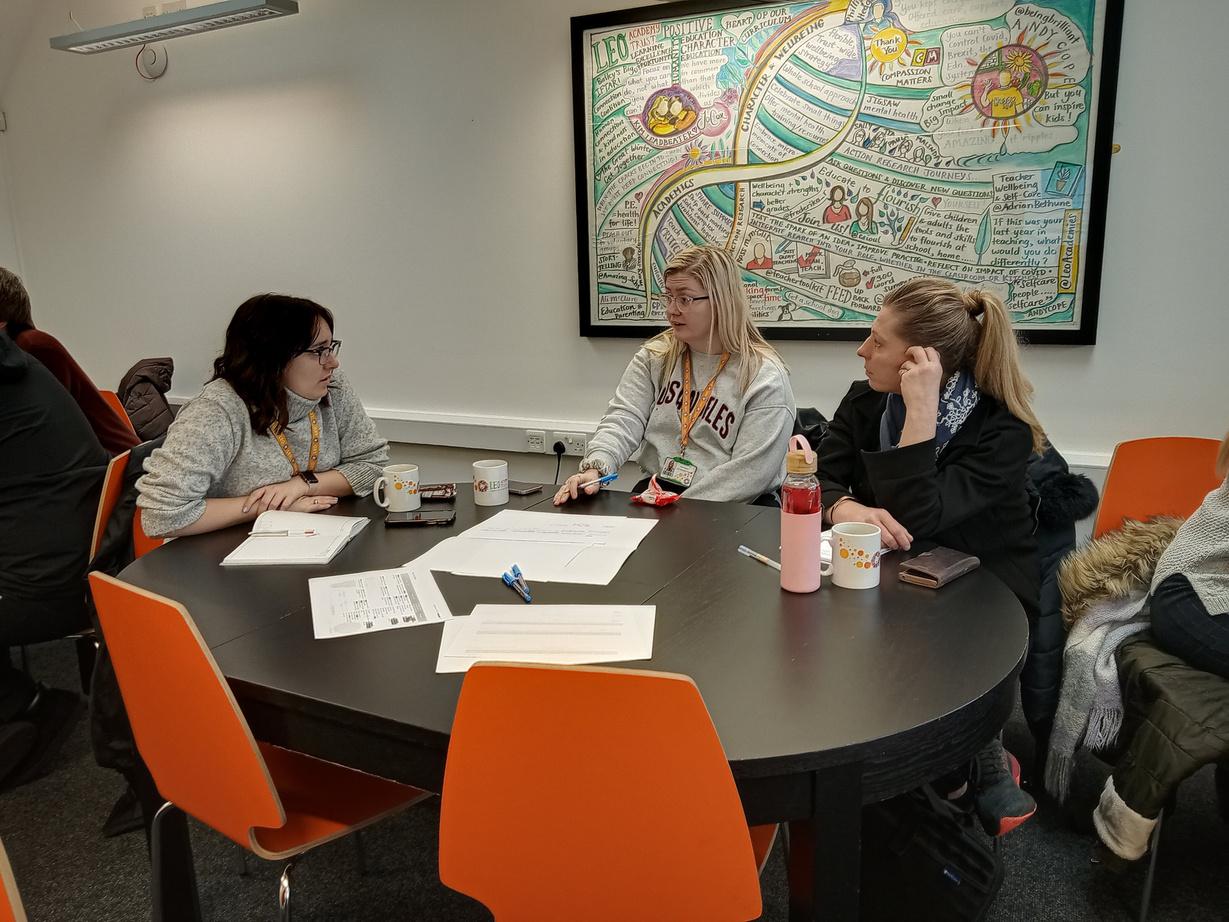
A leadership programme for those taking on new responsibilities in leading and managing individuals, classes, teams, and projects to become effective and have greater impact.
A senior leadership programme which supports the development of an aspirational vision and the skills to balance challenge and support in order to create significant and sustainable impact.
High quality professional development in areas that matter to us and to our commitment and ambitions for children and young people, including technology; safeguarding; health and wellbeing; and curriculum development This ensures we are at the cuttingedge in terms of our own expertise and how we equip the next generation to live happy, healthy and fulfilling lives.
Opportunities for our experienced staff to establish themselves as system experts. A number of our experienced colleagues have contributed to a wide range of national events and publication as conference speakers, contributors to professional magazines, and by providing case studies for national use.
In addition, LEO Academies comes together each year for our Trust-wide conference which attracts leading national figures and educationalists as speakers. This vibrant and engaging event establishes LEO as a thought leader in the academy trust sector attracting
62
4. We must seize the potential of technology
“Across LEO Academy Trust we fully understand the importance that technology has as a way of enhancing the way we operate as an organisation All of our staff and pupils have fully embraced the digital way of working and we are always looking to develop our use of technology to improve standards, reduce staff workload and with the aim of better worklife balance.”
(Central staff member)
We believe that technology should make life and work simpler, not more complicated. It is why as a trust we are using technology to enhance children's learning, develop professional networks, and open up opportunities for remote and flexible working
Technology is at the heart of LEO Academy Trust's strategy and our ambitions to ensure this remains a brilliant place to work and learn. Our team includes experts in technology who are able to support teachers and other staff with its use and in maximising its potential. Indeed, LEO Academy Trust is committed to being at the 'cutting edge' of technological developments and impact in education, not least as technology will play such an important role in the lives of children. As a team we want to equip children to be 'masters' - not servants - of technology, so that they can use it creatively, safely and positively, contributing to them leading happy, healthy and fulfilled lives. Only through our team can we make that happen.
We are committed to ensuring all our staff are able to build the relationships, access the professional development, and draw on cutting edge hardware and software to deliver our ambitions for technology.
What does this entail?
Strong central expertise around technology that ensures our staff are well equipped, trained and supported in the use of technology.
Ensuring teachers and staff are supported, equipped and involved to enable all our children and young people to use technology to connect as global citizens, opening their hearts and minds to the wider world. Technology can help us to facilitate an inspiring and breath-taking curriculum, based on access to huge knowledge, wider cultures, and inspiring people and organisations.
Maximising technology to reduce workload and encourage greater creativity, collaboration and support. By connecting our employees through online platforms, we give them the opportunity to help and share - working smarter, not harder, to improve what we do, and not to reinvent the wheel.
Drawing on our partnerships and close working relationships with Google for Education, Arbor, Adobe and LGfL, to provide a wide range of opportunities to learn, develop and innovate through technology. These partnerships can provide staff with access to CPD training and webinars, access to early features, and invitations to discuss product development and future product releases. As a result of these partnerships, we are constantly upskilling our workforce to ensure all staff feel confident and able to use technology effectively to support them in their roles

64
5. We serve, and are accountable to, our communities
“I am proud to be part of LEO Academy Trust and value all it does for our community The Trust actively engages with so many different local partners and charities, bringing a wealth of opportunities to all involved.”
(LEO staff member)
We believe that the joy of work comes from serving and contributing to our communities. Education plays an enormous part in that
LEO Academies Trust recognises the importance of leading strong schools that perform well in Ofsted inspections and on national tests. We owe it to our children and our communities to meet the high standards set by government. However, we also recognise that these should not dominate or define our measures of success as a trust and as a group of schools.
We will be driven by the hopes, aspirations, and ambitions of our communities too. We want our staff to be driven, first and foremost, by doing what is right by them and recognising that our children and their families come first. That means giving them the highest standard of knowledge and curricula, but also finding creative ways in which to inspire children to be healthy, happy, and active members of their communities.
As well as employing staff for their professional expertise and experience, we want to recognise the wider talents and aspirations of our staff so that they can make the greatest difference possible to our children and their communities
What does this entail?
Setting objectives for our staff that don’t simply reflect national performance measures, but goals that reflect our ambitions for our communities.
Giving all our staff a role in building links with the community - from those working directly with our parents to those collaborating with local businesses and public services on curriculum development, CPD and support services. Creating opportunities for our staff to add value to the work of the community, through volunteerism and collaborative projects with others.
6. Modelling environmental sustainability helps
us shape our legacy
“In our school we all know that looking after the planet is everyone ’ s responsibility. We have Eco Warriors that remind us to recycle products, avoid waste and reduce using electricity wherever we can. ”
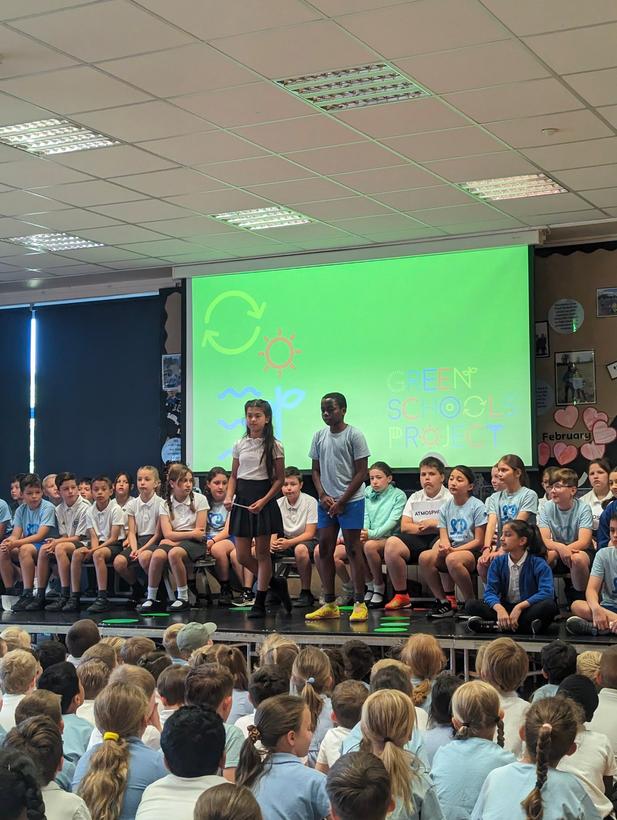
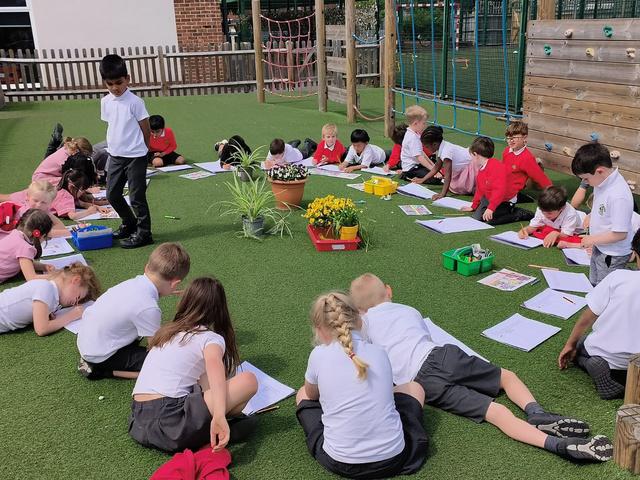
(Pupil)
A recent survey of young people found that 87% were concerned that climate change will negatively affect their lives; but, also, that they wish to be supported and empowered to take positive action themselves. Our children and young people want us to model environmental sustainability, to help them protect and shape a healthy and sustainable world for them to grow up in and inherit. At LEO A d T t t l b li th t as adults we can, and should, prioritise sustaina Indeed, we believe our trust can be a pioneer i schools and the education system can take a le central role in that.
What does this entail?
We will work as a team of colleagues acros to shape a powerful and impactful sustaina contributions from across the trust and its schools. We will work together to set ambitious goals to achieve this.
We will all play our part in creating an environmentally sustainable model for education – from ensuring our curriculum reflects the knowledge and connections we need in order to shape a more sustainable world, to ensuring our school sites, administration, and working practices reflect our ambitions and commitment. We will forge links between our staff and pupils and the ‘ green ’ industries and employers, so that we can learn from them and their cutting-edge technologies, and prepare children and young people for the opportunities that exit in this growth area.
66
Our Challenges
Resources - finding the time and money to invest in learning and development;




Focusing development too narrowly on certain skills or ways of learning;
Investing in development that meets organisational need;
Competing for and holding on to talented people and recruiting people who are the right fit for your organisation;
Lack of talent or a weak talent pipeline;
High level of competition;
Lack of available roles or resources to meet succession needs

68
Sustainability Strategy
LEO Academy Trust recognises its responsibility as an education provider to help protect the environment for current and future generations. Our Trust aims to lead by example in the way we handle environmental issues inside our workplaces

Our aims
To reach carbon neutrality by 2030 by reducing our carbon footprint as much as possible.
To bring an awareness of sustainability to the forefront of our education, not only in our taught curriculum but around school, in our extra-curricular activities and general ethos. To ensure all sites, buildings and operations across the Trust are as sustainable and ecofriendly as possible.
Staff and community members to be aware of environmental issues and have the knowledge and skills to be able to make informed decisions around their lifestyle to live sustainability.
Pupils feel confident in making decisions and carrying out actions to improve our quality of life without compromising the planet. To integrate the values inherent in sustainable development into all aspects and levels of learning.


Waste and Recycling
To minimise and actively manage waste through elimination, reduction, reuse and recycling across our academies.
Energy and Water
To conserve water through efficient use and management, and to reduce energy use and our carbon emissions to be carbon neutral.
Travel and Transport
To provide viable and accessible sustainable travel options for staff and students for travel to and from work, and travel for work which results in a reduction of carbon emissions. Students and staff should always endeavour to use the greenest mode of transport.

Procurement
To positively influence the sustainability performance of suppliers and the sustainability credentials of the goods and services we purchase.
Academies and Buildings
To reduce the environmental sustainability impacts of our construction and refurbishment projects and ensure that all LEO Academy Trust buildings are operating at their optimum efficiency.
Acer’s green ethos and approach to climate change highly impressed LEO, therefore we decided to implement our sustainability strategy by investing in the most energy-efficient Acer devices. Acer has planted a tree for every Acer Chromebook device purchased by LEO Academy Trust as part of their carbon offset program. And now, with Ecologi, we have planted up to 1,300 trees in Madagascar!
70
LEO Conference 2022 Sustainability
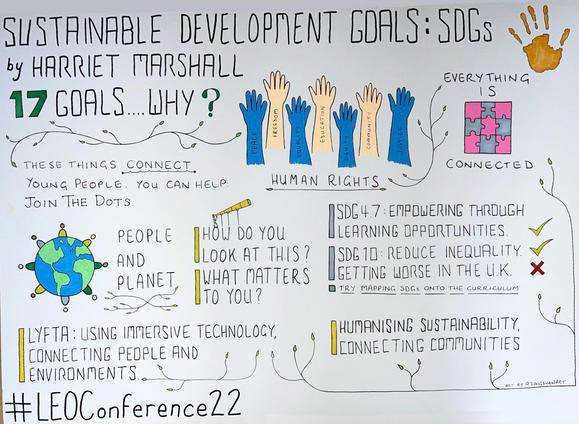







72
Partnerships
Across LEO Academy Trust, we believe that cultivating partnerships and using these to further develop our pupils, staff and the wider community academically, socially, culturally, physically and emotionally is essential. We have a wide variety of partnerships that are mutually beneficial for all and enable our communities to develop; these partnerships span all areas of the organisation including teaching and learning, digital, marketing, and finance.

Through our ongoing commitment to our partnerships, pupils develop knowledge, skills and understanding that allow them to be active and responsible citizens in an ever changing world. Pupils are able to learn about politics, parliament, current affairs, digital skills, finance, the economy and many other important life lessons. Their education is brought to life using real issues and events in local to global contexts. Similarly, our staff have access to a wide range of training and professional development opportunities which otherwise would not have been available. They also have access to a wealth of knowledge and connections to further support them to provide the very best teaching and learning for all of our pupils.
No school can exist in isolation, and no Multi Academy Trust can thrive without having a wide range of partners who are committed to helping us serve our community
As the Trust grows and develops, our partnerships will expand, develop, and change. We are a Trust that values partnerships, something that requires a balance between, and empowerment of all parties.
Our partnerships aren’t conditional on being a part of our Trust; the only condition is that partnership work has a positive impact on the lives of children and families. In this spirit, we are open to any and all conversations with schools, organisations and individuals who want to work with us Whether that’s about a school joining the Trust; working with us collectively; or working with a school or a child individually.
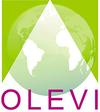



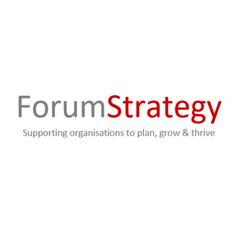
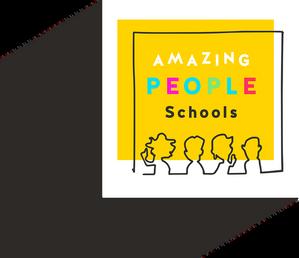















74

Communication Strategy
Objective:
To proactively build the Trust’s reputation, within our local community, regionally and in the wider sector, allowing LEO Academy Trust to bolster its credentials, attract growth and position the Trust as a leading education provider in the area.

Aims:
Our communications strategy aims to
Raise the profile of LEO as a brand both locally and within the wider sector; Enhance the public's understanding of LEO ‘ s vision, mission and values; Build positive relationships with the community and local and national media; Promote LEO Academy Trust as a desirable choice for pupil and families; Recruit and retain the best people who align with LEO vision, mission and strategic aims.
Successfully delivering this strategy will enhance and protect the Trust’s reputation, thereby helping achieve the aim of raising its profile to amplify local support for all LEO schools and enable future growth.
Enhancing the Trust’s Profile:
Integrating the core communications disciplines of proactive positive PR, reputation management, public affairs and stakeholder engagement ensures a joined-up approach that demonstrates the strengths and achievements of the Trust to its target audience.
The Trust’s target audience will include, but not limited to; families and carers of current and prospective pupils, staff, governors, wider school communities, key decision makers, other schools who may benefit from joining a Trust and the wider education sector.
Positive PR is important to the Trust and so we engage with partners who have expertise in providing positive profile-raising opportunities and support with reputational issues if needed. They assist us in securing positive local and regional media coverage for our schools in order to build and maintain a strong reputation in the local community. Our partners also support us to showcase our schools’ and Trust’s ethos, approach to education, and our vision amongst our key target audience by using key messaging to join up and present the Trust as a unified family of schools.
76
Key messages:
The key messages that LEO Academy Trust will communicate through its public relations efforts include:
LEO Academy Trust is an innovative multi-academy trust that provides great learning communities, excellence for all and endless opportunities LEO;
LEO Academy Trust is committed to providing a safe and supportive learning environment;
LEO Academy Trust is a diverse and inclusive community;
LEO Academy Trust recognises and invests in staff potential;
LEO Academy Trust delivers an ambitious curriculum for all. At the heart of this is our LEO Pupil Outcomes and LEO Learners Pupil Characteristics; LEO Academy Trust is a great choice for students and families because we make a difference to the communities we serve.
Communication Channels:
LEO Academy Trust will use a variety of communication channels to reach its target audiences, including:
The trust and individual academy websites
Newsletters
Social media including Twitter, Instagram, and Facebook
Film and video coverage
Local, regional, trade and national media coverage
Public events
Media relations
Stakeholder and sector engagement
Frequency:
LEO Academy Trust will communicate with its target audiences on a regular basis. The frequency of communication will vary depending on the audience and the message.
Evaluation:
The effectiveness of LEO Academy Trust's communication and public relations efforts will be evaluated on a regular basis. This will be done by tracking the following metrics:
Website traffic
Social media engagement
Media coverage
Parent and family satisfaction
Pupil achievement and outcomes
Additional Guidelines:
In addition to the principles outlined above, LEO Academy Trust will follow the following additional guidelines when conducting public relations activities:
Be honest and transparent in all communications
Avoid making promises that cannot be kept.
Be responsive to inquiries from the media and the public.
Correct any inaccurate information that is published about LEO Academy Trust. Use social media responsibly and ethically. Protect the privacy of students and families.

By following these guidelines, LEO Academy Trust can ensure that its public relations efforts are conducted in a responsible and ethical manner.
Conclusion:
LEO Academy Trust is committed to using communication to build relationships with its stakeholders and to promote its vision, mission, and values. By following the principles outlined in this strategy, we can ensure that we proactively build the Trust’s reputation within our local community, bolster our credentials, attract growth, and position ourselves as an effective and successful Multi Academy Trust.
78



@LEOacademies @LEOacademies @LEOacademytrust LEOacademytrust.co.uk









































































































